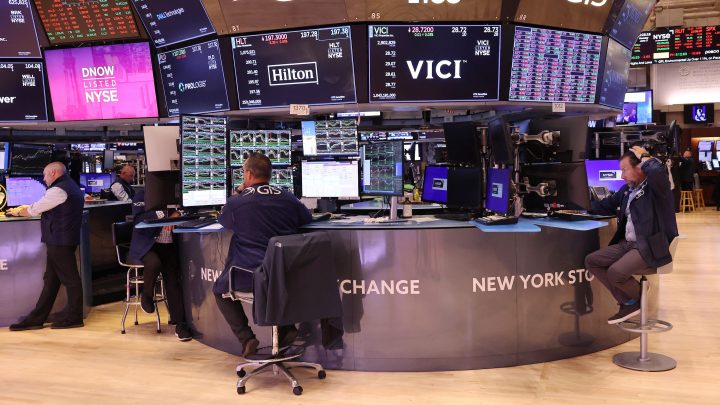
How the paper “wealth effect” influences real-life spending
How the paper “wealth effect” influences real-life spending

At the end of last year, the total sum of all stocks in the U.S. was almost $51 trillion. Only six years earlier, that total was just $32 trillion. Americans are, on average, much richer on paper. But how much of all that paper wealth is actually seeping into our real-life spending? That depends on something in economics called the wealth effect — and economists disagree on how strong it is.
If you feel good, you spend good. That is the idea behind the wealth effect.
“If you see a lot of green on the screen and your 401(k) looks a lot fatter, and you looked at Zillow and saw the price was up for your home, you feel better about things,” said Mark Zandi, chief economist at Moody’s Analytics.
Paper wealth pumps you up — and your spending too. You might go out to dinner and have a nice bottle of wine, Zandi said. The reverse is true too: If your stocks are crashing, you’re less likely to splurge.
It also depends on what kind of paper wealth you have.
“Stock wealth is one thing, housing wealth is another,” Zandi said. “Crypto is another thing altogether.”
Crypto is so volatile, you might not actually trust that you’re that much richer. But the wealth effect isn’t entirely psychological, especially these days. In the first quarter of this year, Americans earned $11 trillion in interest and dividends, according to the Bureau of Economic Analysis. That is the most, ever.
“In general, on average, through time, across assets, I’d say for a dollar increase in someone’s net worth, their spending will increase two pennies,” Zandi said.
Some economists believe it’s much higher, maybe more than 30 cents on the dollar, driven by more retirees and more household wealth. Whatever the fraction is, the numbers are huge.
“Total market capitalization of all U.S. publicly traded stocks is around two times the size of the U.S. economy,” said Doug Ramsey, chief investment officer at the Leuthold Group. “The long-term average is for the stock market to be a little bit smaller than the size of [gross domestic product].”
If paper wealth is an engine of consumer spending, it ran hot coming out of the pandemic, argues Tuan Nguyen, U.S. economist for RSM, who views the wealth effect as particularly strong.
“It was certainly one of the reasons why inflation reached 9% two years ago,” he said.
Today, the wealth effect might be doing something different: “helping to keep the economy running strong instead of running hot,” Nguyen said.
All that paper wealth could be, he said, one reason the U.S. economy has defied predictions of imminent recession again and again.
There’s a lot happening in the world. Through it all, Marketplace is here for you.
You rely on Marketplace to break down the world’s events and tell you how it affects you in a fact-based, approachable way. We rely on your financial support to keep making that possible.
Your donation today powers the independent journalism that you rely on. For just $5/month, you can help sustain Marketplace so we can keep reporting on the things that matter to you.











